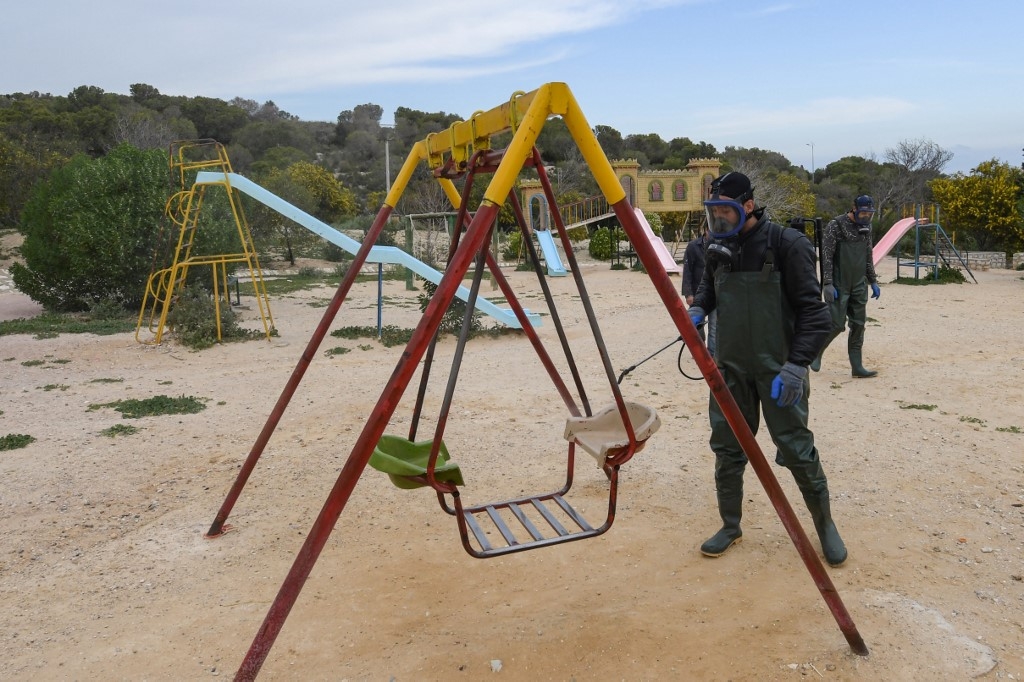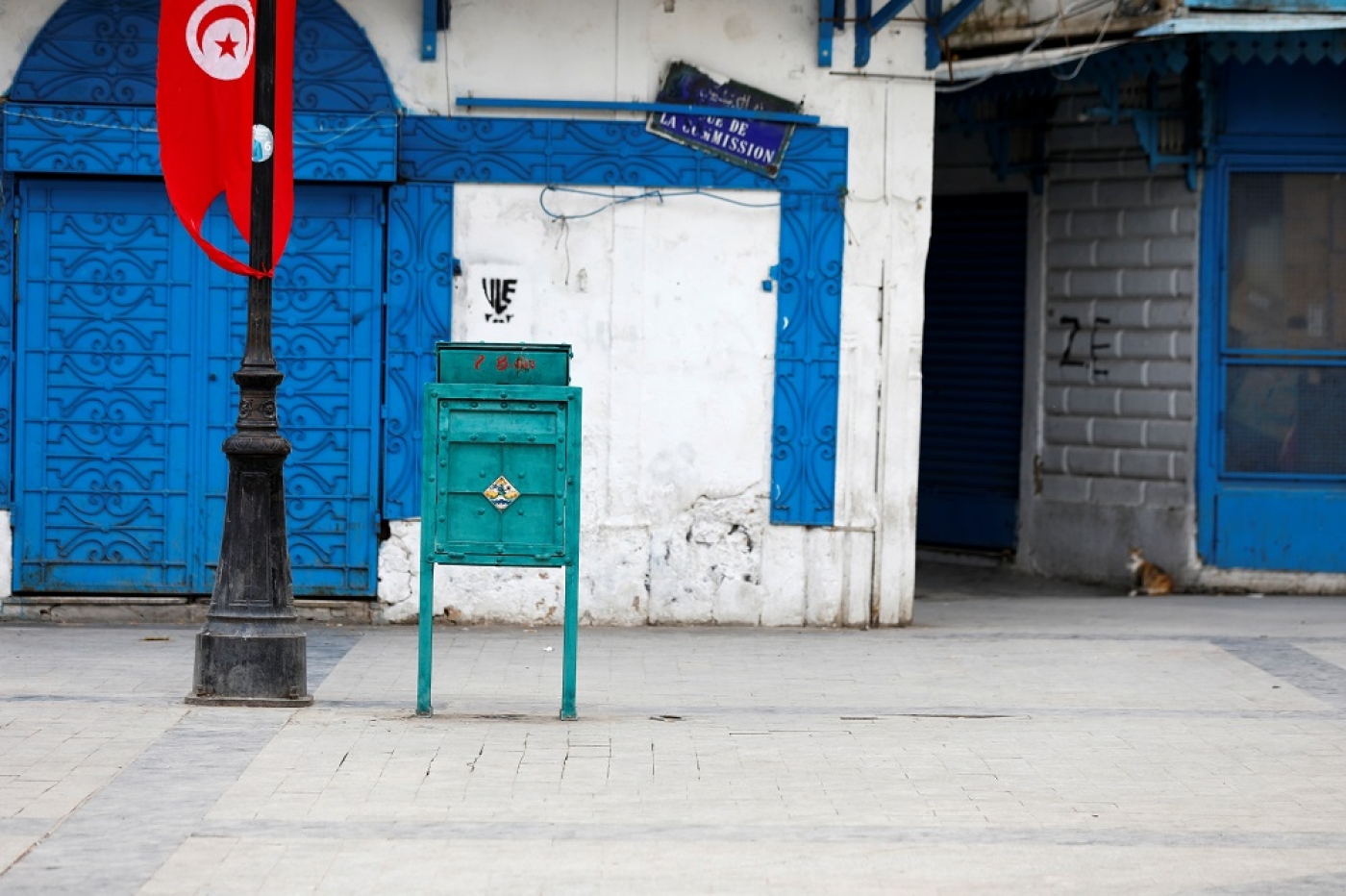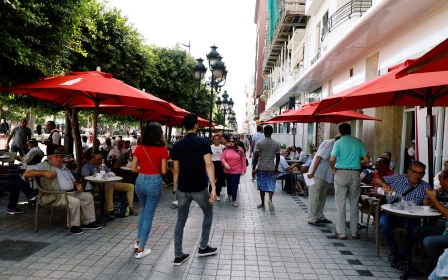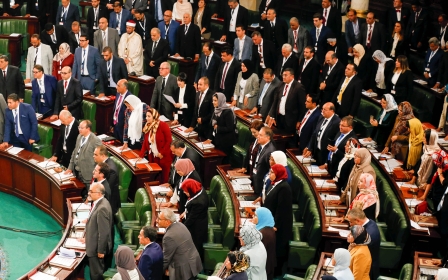'Like a scene from a disaster movie': Tunisians on edge as coronavirus curfew takes effect

The streets of the Tunisian capital were empty at dusk on Wednesday, on the first night a coronavirus curfew took effect in the North African country.
Residents in the capital could be seen racing home in the hour leading up to the 6pm curfew, with most supermarkets and pharmacies shutting early following Tuesday's announcement that the army would be patrolling major highways and streets to enforce the measure.
"It's like a scene from a disaster movie," said Ahmad Azzi, a 42-year-old engineer, as he carried bags of shopping home minutes before the curfew took hold.
"The government has taken drastic steps to contain the virus. Hopefully the people will listen and we won't see numbers spike like Italy and Iran."
Tunisia has instituted tough measures to halt the spread of the virus, known officially as COVID-19.
New MEE newsletter: Jerusalem Dispatch
Sign up to get the latest insights and analysis on Israel-Palestine, alongside Turkey Unpacked and other MEE newsletters
All international flights have been suspended, schools, mosques, markets and bars have been closed, and restaurant and cafe times have been limited to mornings.
So far, authorities have confirmed 29 cases of the disease, with 7,479 people placed in quarantine. There have been no reported fatalities from the virus which was first reported on 2 March.
In a statement released late on Wednesday, Prime Minister Elyes Fakhfakh called on Tunisians to "act responsibly, support the state's efforts in combating the spread of the virus, abide by the law and embrace the required preventive measures."
But as the curfew hour approached, several Tunisians told MEE that while they would try to honour the government's request, their patience wouldn't hold for long.
"I don't have work and spend most of my day at home. I need freedom. I need space to breathe," said Kholoud, a 26-year-old fashion graduate.
'I don't have work and spend most of my day at home. I need freedom. I need space to breathe'
- Kholoud, 26, fashion graduate
"I can understand the government wanting to contain the spread of the disease but spending 12 hours at home for weeks on end - this is bullshit. I won't spend all my evenings at home, most Tunisians won't."
Tunisia is the only democracy to successfully emerge from the 2011 "Arab Spring" uprisings when people rose up against the autocratic rule of Zine el-Abidine Ben Ali.
The state imposed a curfew across the nation during the 2011 revolution, but has also used it in some towns to contain protests against austerity-driven coalition governments.
The North African country has a youth unemployment rate of nearly 35 percent, a large public debt and inadequate public services - problems that drove voters to reject the political establishment in last autumn's presidential and parliamentary elections.
Middle East Eye delivers independent and unrivalled coverage and analysis of the Middle East, North Africa and beyond. To learn more about republishing this content and the associated fees, please fill out this form. More about MEE can be found here.





